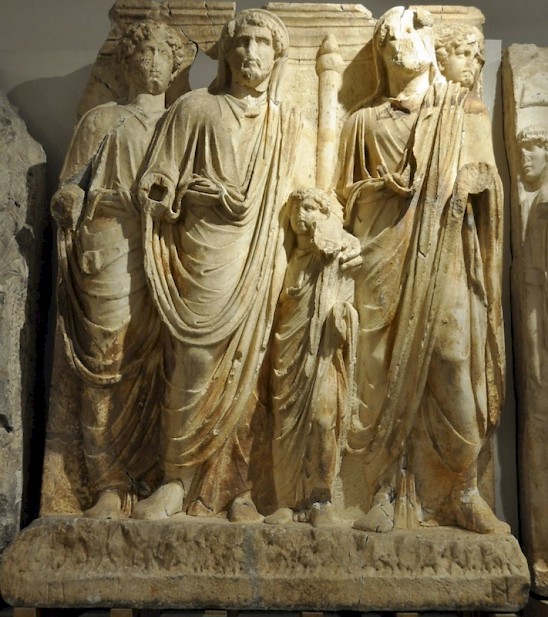Caesar
Caesar: title of the intended successor to the Roman throne. It is derived from the name of Gaius Julius Caesar.

One of the ancestors of Gaius Julius Caesar, the dictator who destroyed the Roman republic, must have been blessed with a wealth of hair, because he received the surname caesar, which means "long hair". For the soldiers of the conqueror of Gaul, it became a matter of pride to be not just legionaries of Rome, but Caesar's men. After the dictator had been assassinated in 44 BCE, it turned out that he had posthumously adopted his relative Octavius, who was from now on called Gaius Julius Caesar too. The magic of this name was sufficient to make complete legions side with the young man during the civil wars. Although he later changed his name into Augustus (in 27 BCE), many people continued to call him Caesar.
Caesar Augustus had no son and adopted several men as his successor; his grandsons Gaius and Lucius received the name Caesar, later Postumus Agrippa, and finally Tiberius, who eventually succeeded Rome's first emperor. Other members of the royal family received the surname too: Tiberius' son Drusus, Germanicus (and all his sons), and the emperor Gaius (Caligula). Claudius also accepted the name when he succeeded Caligula in 41.
By now, caesar was no longer a name, but a title that could be used by the emperor himself - who could also call himself Augustus - and the intended successor, who was appointed by adoption. When Claudius remarried, his stepson Lucius Domitius Ahenobarbus was renamed Nero Claudius Caesar Drusus Germanicus - he succeeded his stepfather in 54 and became notorious as Nero. In the crisis of imperial succession that is known as the Year of the Four Emperors, Galba (r.68-69), Otho (r.69), and Vespasian (r.69-79) accepted the title.
The exception that proves the rule is Vitellius (r.69), who preferred to see himself as consul perpetuus,"'forever consul": the title of caesar was, in his view, too much associated with monarchy, and he wanted a title with republican connotations. He presented himself as a magistrate.
During the Flavian dynasty (Vespasian, Titus, Domitian; r.69-96), the title was used for the intended successor, and this never changed again.